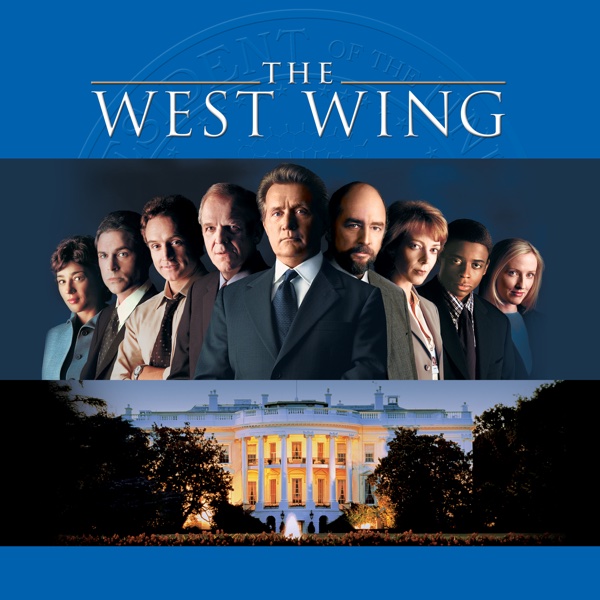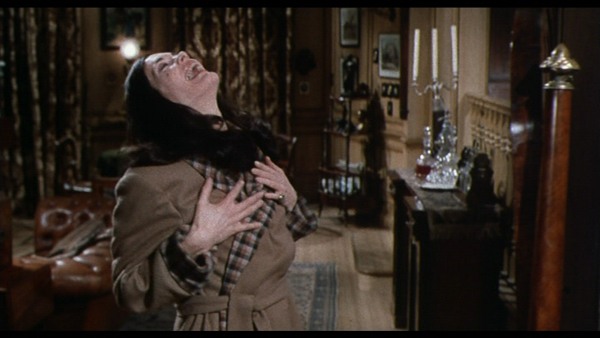Episode 1.07 Angel

When another one of The Master's Vampires bites the dust he decides to send "the three" after Buffy. Meanwhile at the Bronze Buffy and Willow are reflecting on their lack of man action with Angel and Xander respectively. Xander does a goofy dance and manages to rub Cordelia up the wrong way again. As Buffy decides to call it a night, she is confronted by
the three in the alley. Post-titles Angel makes the save and he and Buffy flee to her house. Angel is explained away to Joyce as a fellow student but of the mature nature, and Buffy pretends to say good night to him, while insisting that he spends the night as
the three could still be outside and waiting for him. The next day things become intimate between Angel and Buffy which leads to Buffy discovering a secret about Angel's identity, things will never be the same for either again....

This is a breakout episode for writer David Greenwalt who had previously written the disastrous
Teacher's Pet but would go on to more significant things especially when producing the spin-off show dedicated to the title character of this episode. This is a really important episode in moving the show forward and the stand out of the season so far. There is much stronger chemistry between Sarah Michelle Gellar and David Boreanaz in this episode than there had been up to this point. Greenwalt combines the dark and passionate character moments with some nicely placed comedy involving the Scoobies. I loved Xander's "
Wake up and smell the seduction" line upon hearing that Angel spent the night at Buffy's. Buffy's "Friar tuck" reference is a peach also, as is her subsequent flooring of Giles in their comical sparring session. And Xander trying to cover his tracks when believing Cordy has over heard him discussing Angel's secret only to discover that she is actually upset with a fellow student for wearing the same dress as her is a knock out comedy moment and very consistent with the characters, plus Buffy's "
and you think we have problems" line is a great round off to it.
A crucial moment of the episode is how Gellar sells Buffy's embarrassment upon suspecting that Angel has read her dairy and thus, her deep feelings for him, however, her embarrassment is increased upon learning that Angel didn't read the diary, and that Buffy just exposed herself emotionally to him. This is a nice touch because not long after it the pair kiss, and it is a great screen kiss. It is a logical moment leading into Buffy and Angel giving in to their passion, but conversely highlights some of the issues they are going to face. It is also significant because it shows that Buffy can trust Angel not to make her feel bad about the age gap. It is also worth mentioning that despite this being Angel's episode that due to David Boreanaz's limitations as an actor at this point than much of the heavy lifting emotionally falls on Gellar, and she nails every mark to perfection. Julie Benz does a fine job showing Darla's playful, but sinister menace. Of course its a shame that she didn't feature more in this season, but as a character will really come to her own in the spin-off show.
There are a few slight issues with the episode. Firstly for understandable reasons the Scoobies are sidetracked or there just to move the plot along, with the exception of maybe Xander. It was nice to see more of Joyce, but I did feel that her "
that school is amazing" in response to Giles' concern over Darla (who she believes is Buffy's friend) falls a bit flat and is cliche, as is Willow's
"if you have feelings for someone you can't help it" I have mixed feelings on the Buffy/Angel/Darla fight sequence. Its fun to watch and engaging up to a point, but also drags on and becomes a bit over played towards the end, although Darla and the guns is good fun!
As an episode
Angel nicely carries over the darker tone of the previous outing
The Pack and finally provides the viewer with crucial insight into Angel's character, and a reason to care about him. In doing so it also advances Buffy's character, and perhaps more importantly ups the stakes of the universe of the show.
Episode 1.08 i, robot ... you, jane
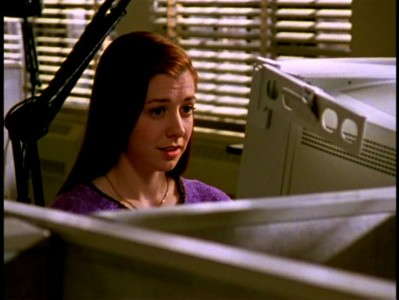
The soul of Moloch an and disgraced demon arrives in Sunnydale via a new book delivered to the school library. I must break away just to highlight just how cute Sarah Michelle Gellar looks in her striking pink dress and lovely pigtailed hair during this scene, just adorable, as is the case for the rest of the episode. There is another new arrival in the form computer teacher Jenny Calender who instantly butts heads with Giles in a round of computers vs. books. Gile's idiot box line is a standout moment here. Moloch escapes the book and infects the schools computer system around about the same time as Willow meets a new guy online. Buffy becomes concerned about the nature of this relationship. As it turns out computer nerds Fritz and Dave become influenced by Moloch also leading to potentially deadly consequences.
As previously stated by more people than just me, even the worse episodes of
Buffy are still watchable in places, and still have things to recommend them, and its just as well in the case of this one, because like
Teacher's Pet it is a very bad episode, in fact one of the very worse the show will produce in its seven season run. So I will be a sport and point out the random stuff which the
iryj gets right before pointing out just why it stinks so much. Firstly we get a promising debut for Jenny, the character doesn't really come into her own until the second season, however I enjoyed her back and fourth discourse with Giles over the issue of computers against books. It nicely sets up the extreme differences between their character, is a credible debate to have given the theme of the episode, and is just the sort of discussion you can see such people having in real life, more on Jenny in future episodes. It was important to address the idea of Willow looking for someone else to date given that Xander only sees her as a friend, and by having her taken with a guy whom she meets online allows us to see Willow's naive and vulnerable side. Sadly the episode doesn't take that far enough. Indeed, as things progress Willow's narrative is sidetracked for the less convincing and more cheesy technology narrative. Needless to say for her part Alyson Hannigan does a great job with what she is given to do. The small character moments work the best, such as the final two scenes including Gile's beautiful speech about books appeal being their smell and history. And I really enjoy the the Scoobies sitting by the fountain reminiscing about their tragic love lives, and how they are all destined to be alone.
What on paper was a very promising and relevant theme was whittled away into a gimmicky MOTW story which just lacked any imagination or heart, and did very little for any of the central characters. Some of the techno language is too on the nose, and the computer nerds are too card board cutouts, and poorly played to boot. The direction and visual style of this episode just feels flat, and a bit like with the first season
X-Files episode
Ghost in the Machine the computer being possessed theme doesn't make for very engaging drama. To make matters worse the final battle is an over blown and clunky set piece, and Moloch in robot form just can't be taken seriously as a threat. Was I too easy on this one?...
Episode 1.09 The Puppet Show
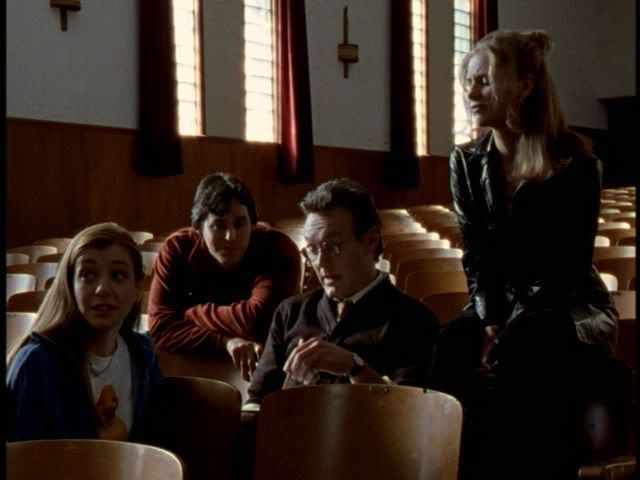
New Sunnydale High Principal Snyder (Armin Shimerman) relegates Giles to chairing the annual school talent contest, and such treats as Cordelia butchering a love ballards. Although Buffy, Willow and Xander at first have fun at Gile's misfortune the tables are soon turned when Snyder over hear them and forces the Scoobies into entering the talent show, a prospect none of them are too thrilled about. However, ventriloquist Morgan (Rich Werner) and creepy dummy Sid make much more of an impression in rehearsal, but later when a student also competing in the talent show is mysteriously murdered, and Morgan starts acting suspiciously, it seems that there is more than meets the eye to him and Sid.
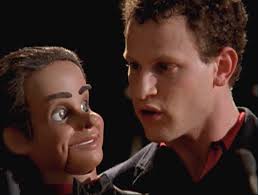
I will defend this episode to my dying day. It may well be my guilty pleasure or fun and cheesy episode, but I think there is a lot to recommend it, and that it is one of better first season episodes, and actually is the one I enjoy re-watching the most. Firstly, its a superb debut for Principal Snyder, he is thrust straight into the heart of the show and I like the rivalry which builds between him and Buffy. Although quite goofy fun Flutie was too middle of the road as a character. Snyder is a wonderfully sinister and weaselly villain, he gets the best dialogue of the episode and Shimerman nails the delivery. It is important to have that direct authority figure to challenge the Scoobies and make their missions more tricky. It was also clever how Snyder is set up as a red herring during this episode, after all he has just arrived around the time of the murder so that would have been logical. Moving forward as it turns out there is much more to Snyder's role than just a bully Principal, one of my favourite supporting characters over the shows run.
One of the highlights of season one was the murder mystery/case of the week format aspect of the show. Its a nice little touch and is a sensible way to get the other Scoobies involved in the story, and here we get some amusing character interactions with the Xander/Cordelia being the stand out. Without giving away how events pan out, the development with Sid is not what you would expect from the creepy doll narrative. I like that it sets up that horror stereotype and subverts it. There is some good tension and the writers kept me guessing till right near the conclusion. It is also worth prising first time Buffy director Ellen S. Pressman who does a steady job bringing tight direction, and visual flair, backed by smooth writing.
The Puppet Show also foreshadows some future events, such as Willow's stage fright which actually comes back into focus in the next episode, as well as a much later season four episode. The show is setting the ground for the Cordelia and Xander rivalry too. These little character moments are pure joy.
There are weaknesses in the episode, maybe some weak action scenes, but I just enjoy watching
The Puppet Show so much than I can skip past those. After all having your own personally relationship with a favourite show is part of the fun. If you disagree, and I just don't engage with this episode then please do comment why in the comments section.


